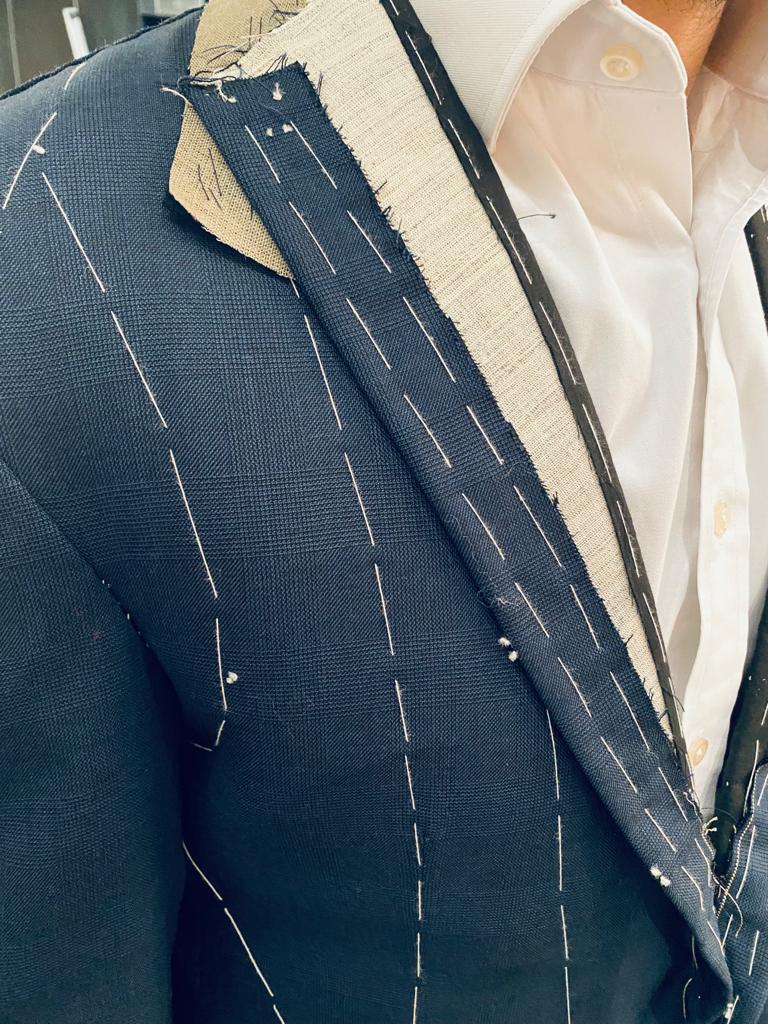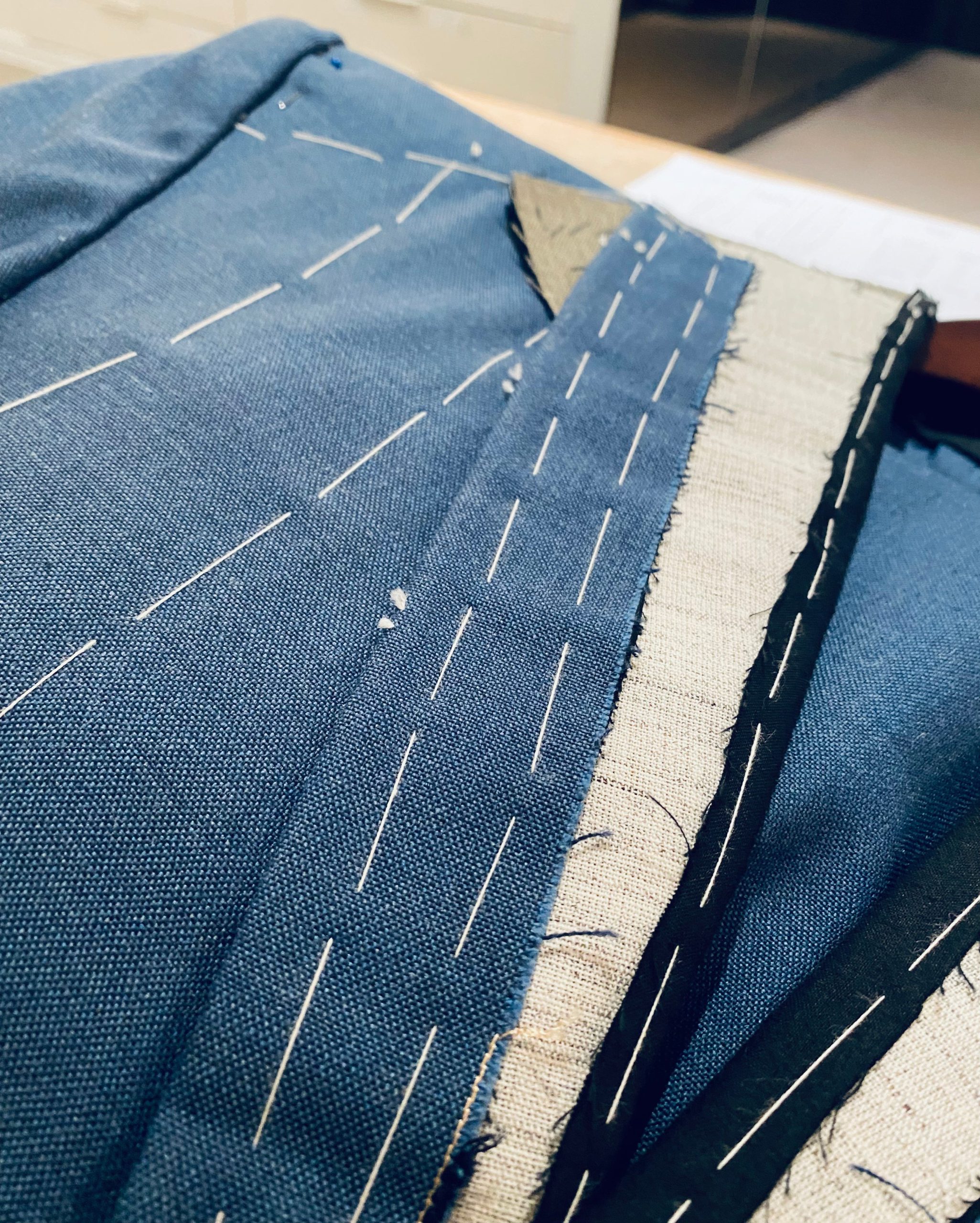In the complex world of tailoring, terminology matters. In recent years, the lines between “bespoke” and “made-to-measure” (MTM) have been blurred, often used interchangeably in marketing pitches, potentially misleading discerning customers. Here we delve into why it’s essential to maintain a clear distinction between these terms, and why conflating them is a misguided practice.

A Matter of Tradition and Craftsmanship
At its core, bespoke tailoring represents the pinnacle of personalised clothing production. Bespoke comes from the word “bespeak,” which means to order or arrange in advance. In the context of tailoring, it involves crafting a garment from scratch, based on individual measurements and preferences. Every single element, from the fabric to the smallest button, is hand-selected, and the garment is constructed with the hands of a seasoned artisan. It is a highly collaborative process, often involving multiple fittings and adjustments to ensure a perfect fit.
On the other hand, made-to-measure is a step below bespoke, albeit a significant upgrade from off-the-peg options. MTM garments start with pre-existing patterns which are then altered based on the customer’s measurements. While it allows for customisation, the choices and alterations are somewhat limited compared to the bespoke process.
This is what you should be seeing on your first fitting, a tailored garment with basted stitching and canvas exposed. This is where the suit is taken apart and reconstructed multiple times (if necessary) and pieced back together to ensure your tailored masterpiece will fit you to absolute perfection. The joy of bespoke is that it’s continually fine-tuned until it fits you like a glove.

The Marketing Conundrum
The bespoke process, due to its exhaustive and personal nature, commands a higher price point. This has led some brands to market their made-to-measure offerings as bespoke to justify a higher price or to appeal to a customer base seeking exclusivity and personalisation. This marketing strategy, unfortunately, diminishes the craftsmanship and tradition that bespoke tailoring embodies.
By using “bespoke” as a marketing buzzword, businesses not only mislead customers but potentially risk diluting the unique selling proposition that true bespoke tailoring offers. Customers might be led to believe they are receiving a fully custom piece when in reality, the garment’s foundation is a standardised pattern with limited customisation options.
Calling for a Clear Distinction
Maintaining a clear distinction between bespoke and made-to-measure is crucial in preserving the integrity and tradition of the tailoring industry. It ensures that the craftsmanship and skills involved in creating a bespoke garment ar
As we navigate the evolving landscape of fashion and tailoring, it becomes incumbent upon both businesses and customers to uphold the true essence of bespoke tailoring. By ensuring that bespoke remains synonymous with the highest level of craftsmanship and personalisation, we can preserve the tradition and exclusivity that has defined this industry for centuries.
Therefore, it is essential for the industry to engage in ethical marketing practices, honouring the true definitions of bespoke and made-to-measure, and educating customers on the nuances that distinguish them. Only by doing so can we ensure that the rich tradition of bespoke tailoring is passed on to future generations in its purest form.




